Bibliophilia: Sanders' Reader
My grandmother gave me this book, and today as I was contemplating the subject for my next post on the love of books, it stuck out at me. Particularly so when I re-read her note on it, describing where it came from and what it had been used for. I used to collect antique textbooks, when I thought I would be homeschooling my children. Then, that time passed, and by the time it came back around I found myself bereft of most of those treasures from the past. Now, I see so many people struggling to re-define school, and how to arrange it with their other obligations. This little book holds an answer for some, I am certain.
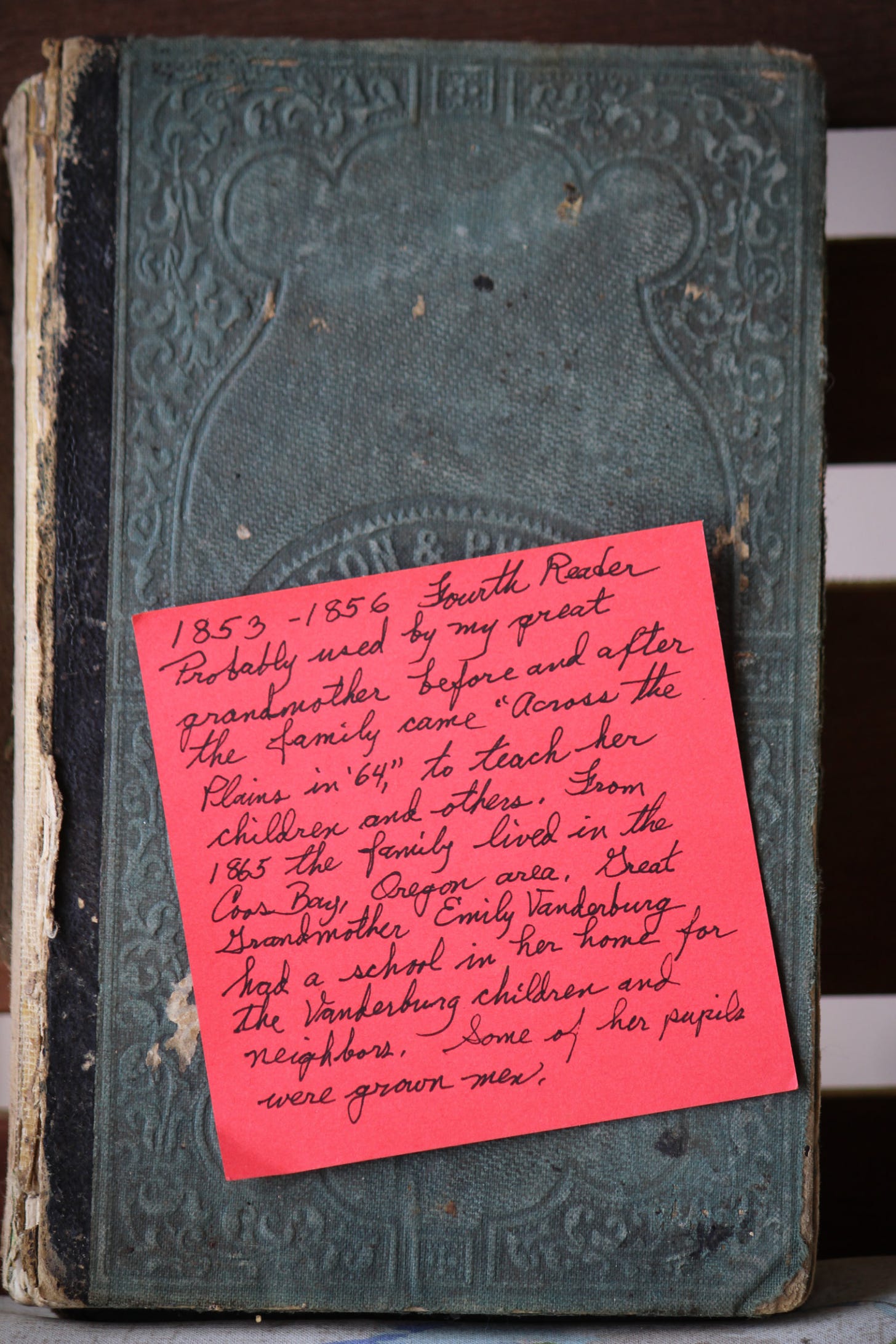
The note reads: "1853-1856 Fourth Reader. Probably used by my great-grandmother before and after the family came "Across the Plains in 64," to teach her children and others. From 1865 the family lived in the Coos Bay, Oregon area. Great Grandmother Emily Vanderburg has a school in her home for the Vanderburg children and others. Some of her pupils were grown men."
This Reader is a fascinating glimpse into the historical education. It was a fair bit more challenging, in some ways, than our current classrooms offer.
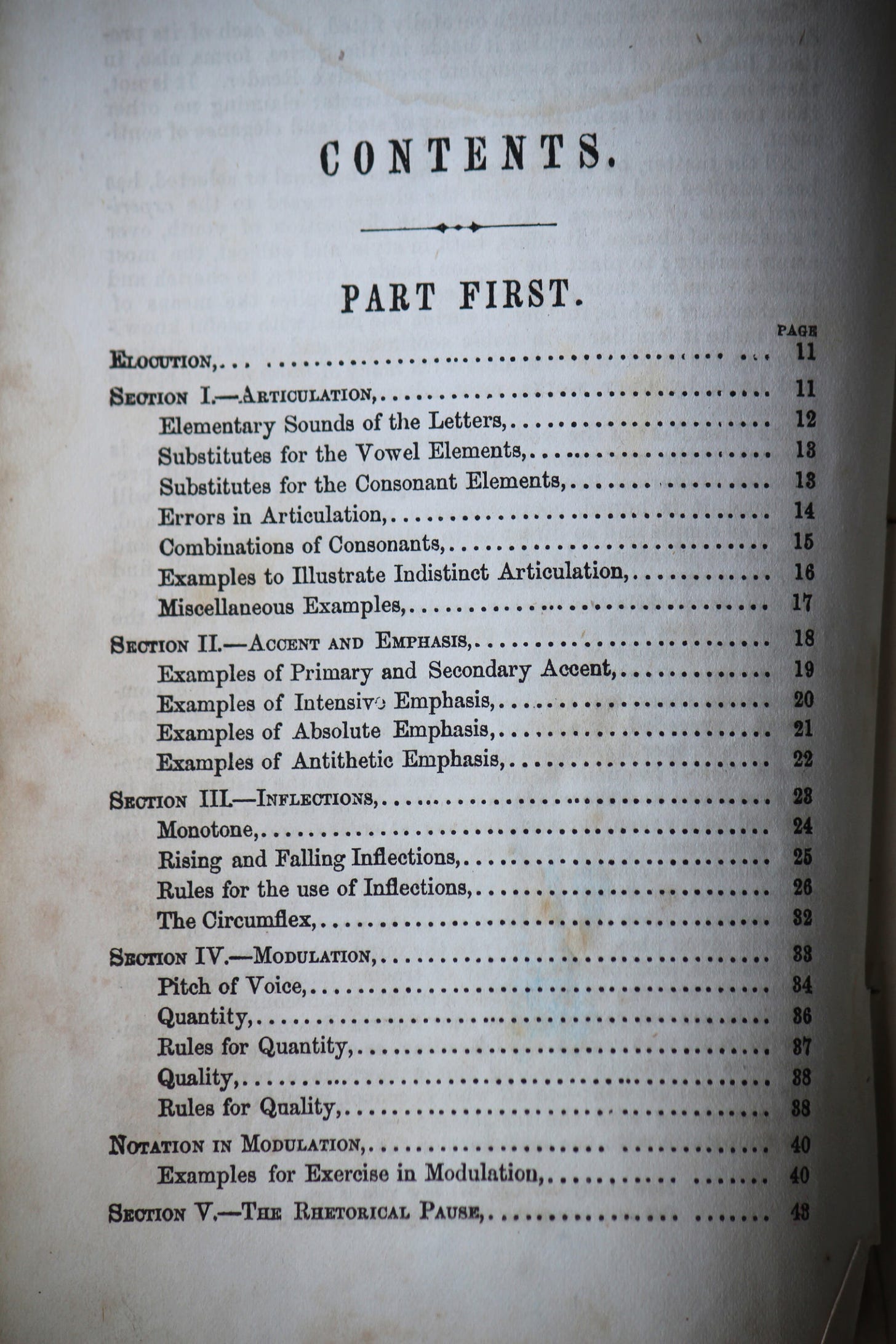
The curriculum of the book wasn't only for expanding the ability to read, it was also supposed to teach the art of public speaking. The orator and rhetoric have become lost arts, nowadays.
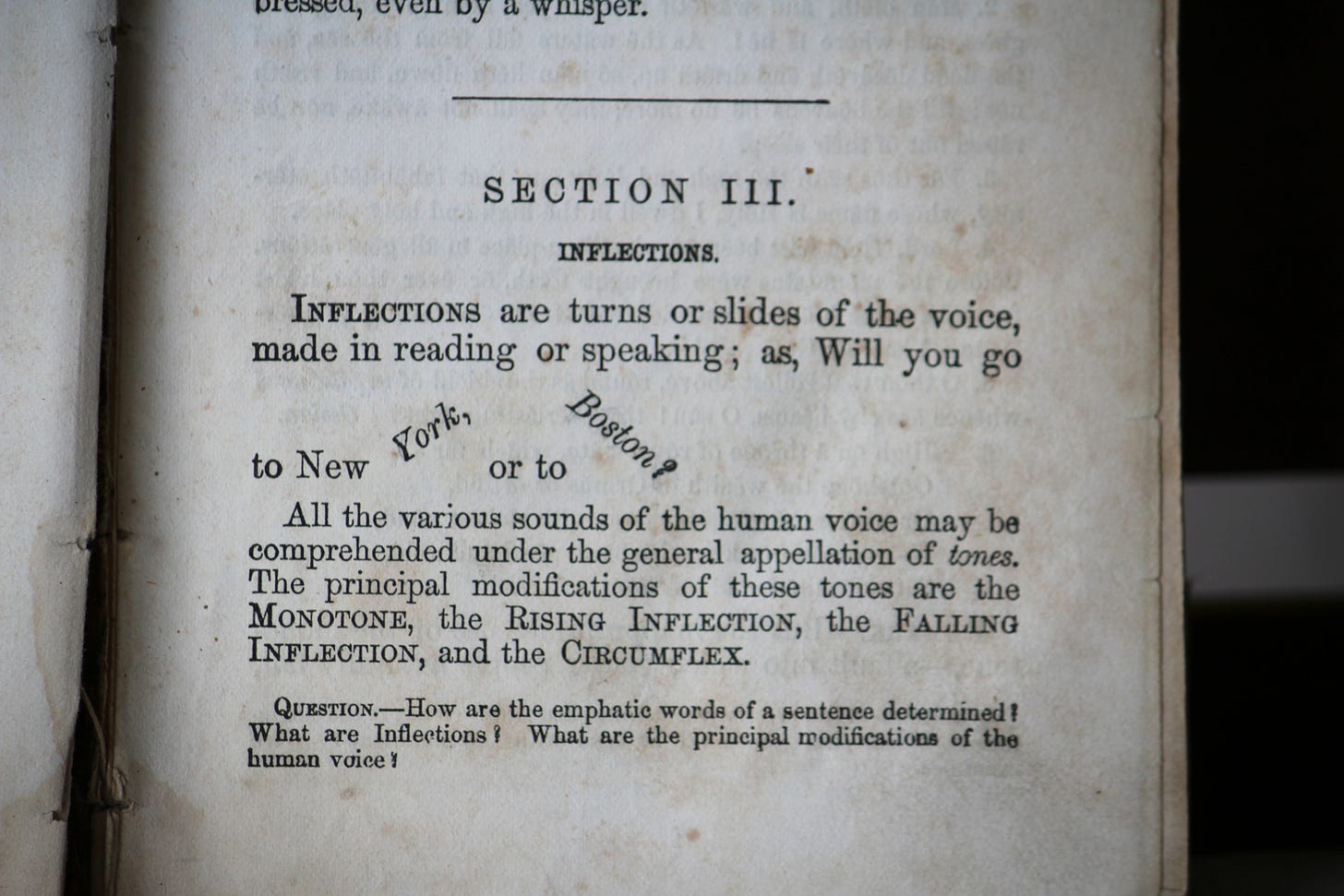
This bit of typesetting must have been a challenge! And most likely expensive, although this is a quality book overall. Certainly not disposable like today's school books.
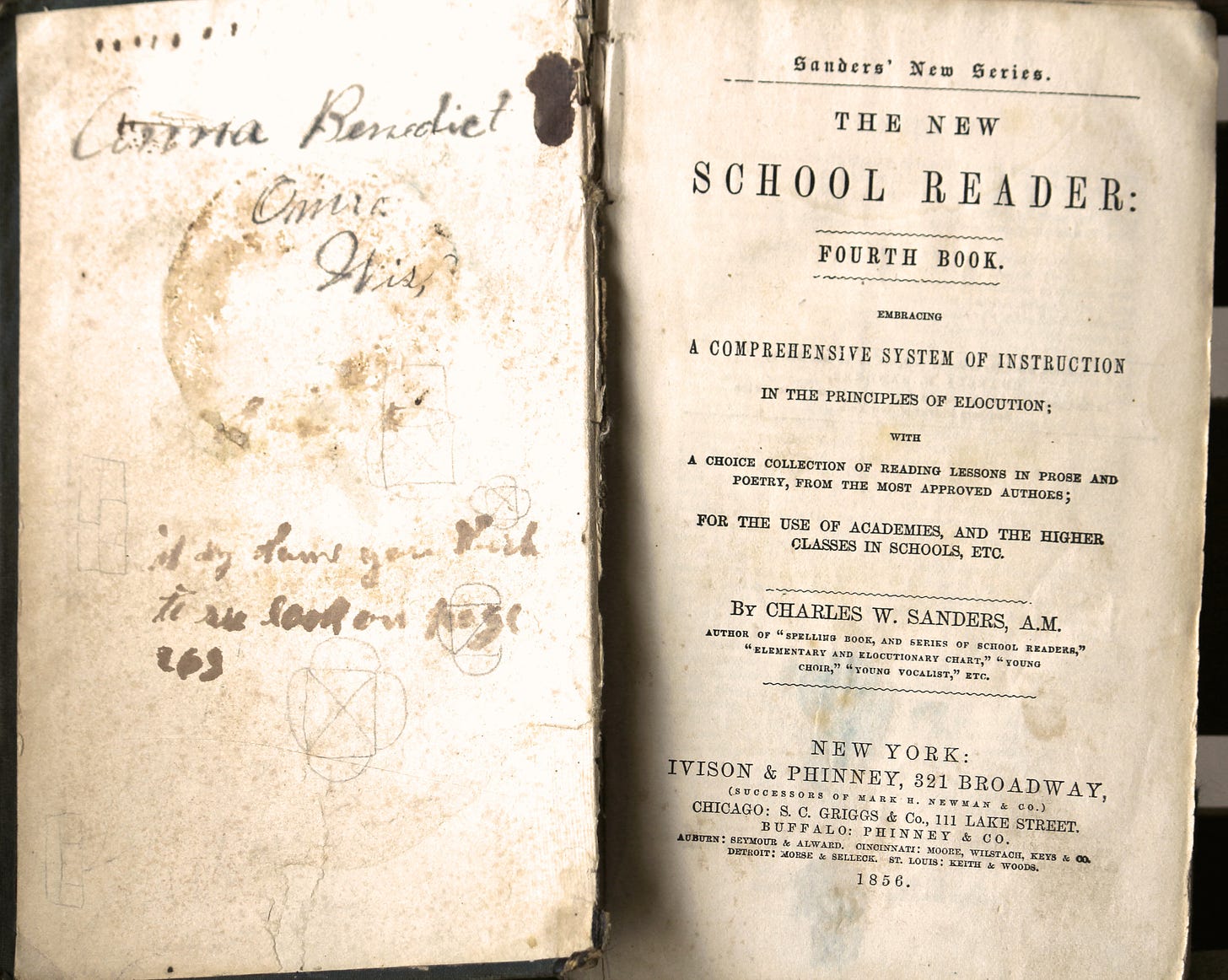
I have to wonder who Anna Benedict was, and what that ink was made of that bled so badly.
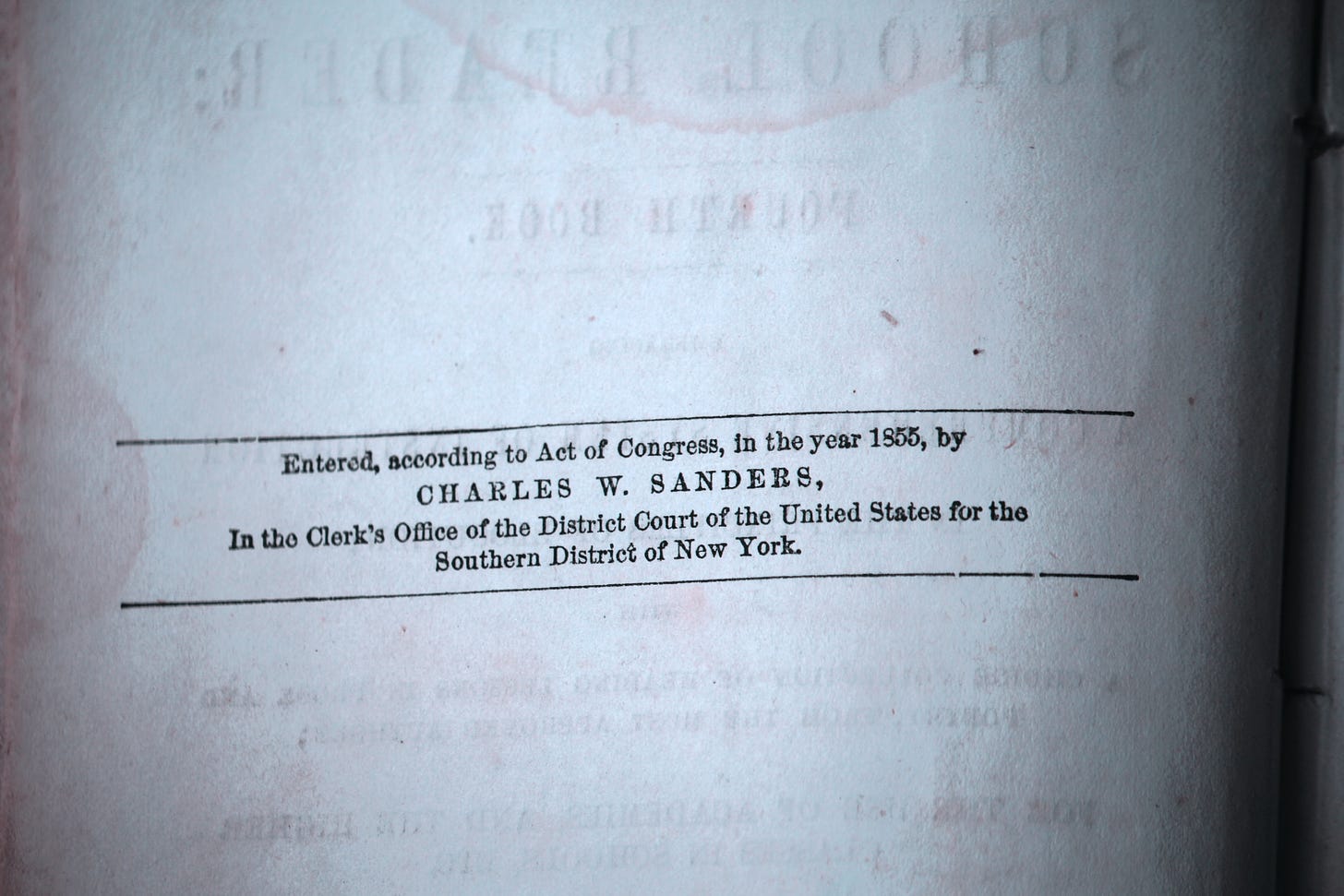
Copyright was a different beast in this day!
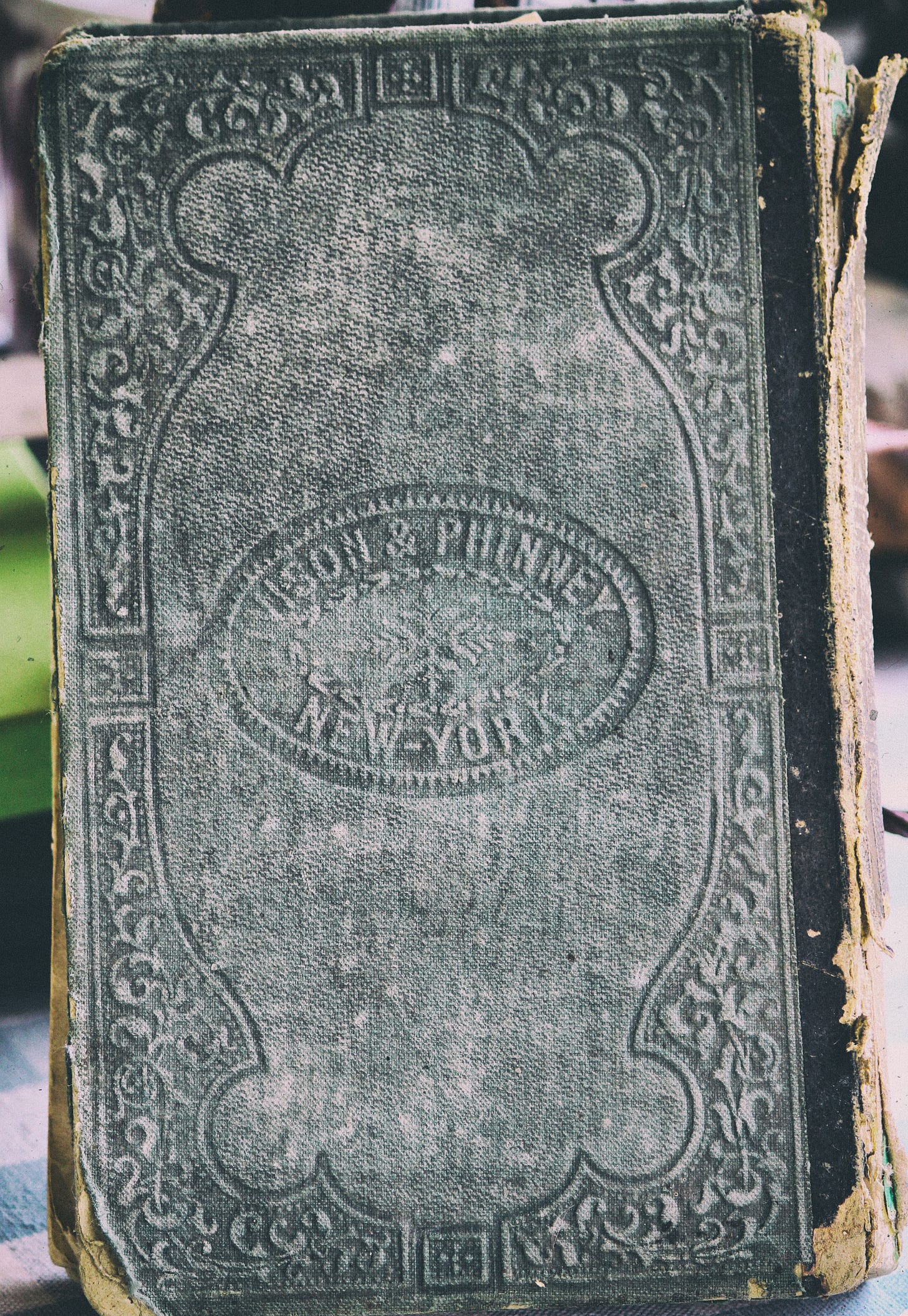
A beautiful book. This was meant to be treated as it was - a tool to be taught from for years. I love knowing that it's been handed down from woman to woman in my little clan. I'm going to sit down with it and my son and see what I can teach him.
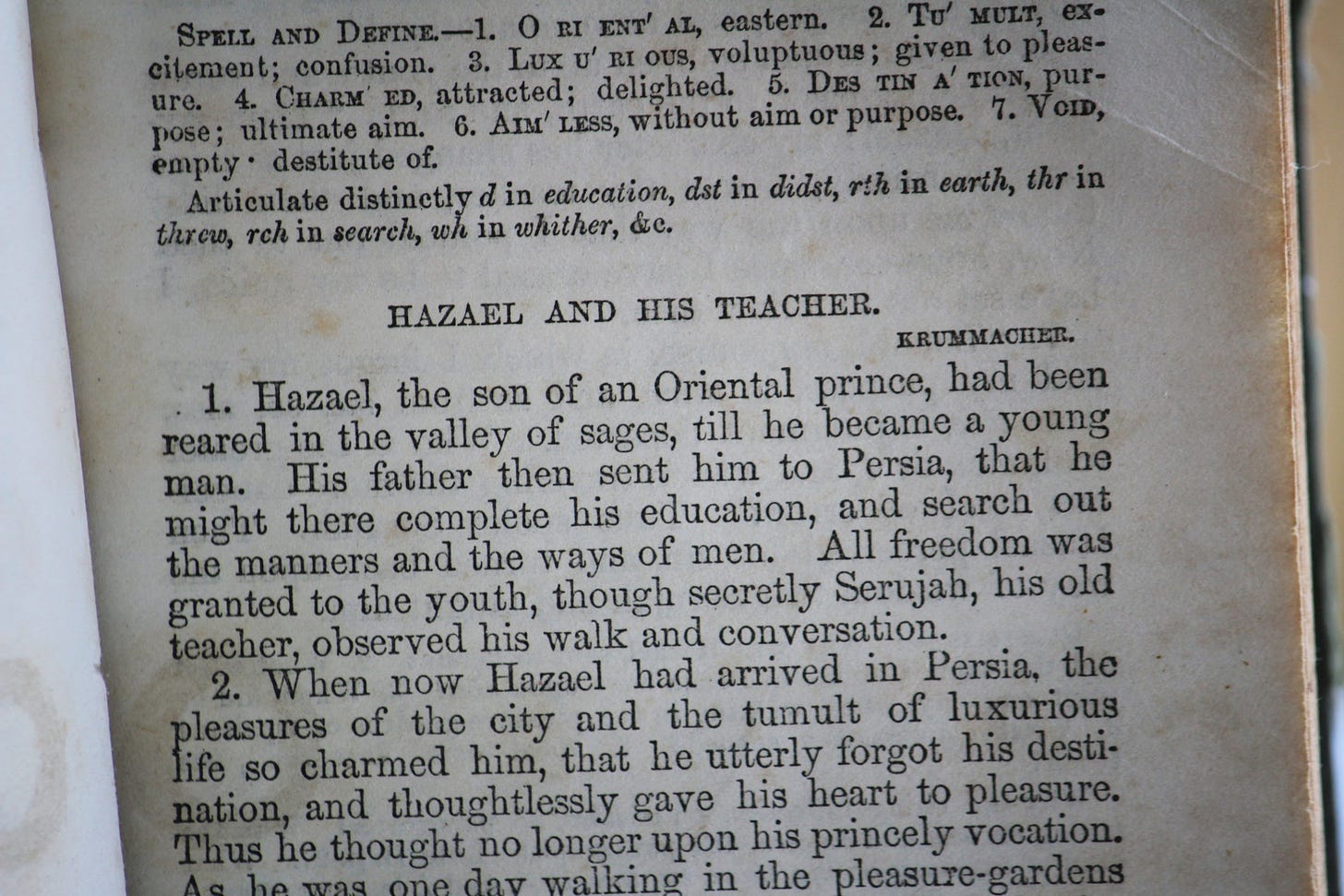
So many passages! It was hard to choose, but I loved the name of the little prince, here, and the familiar tale set in the far lands.
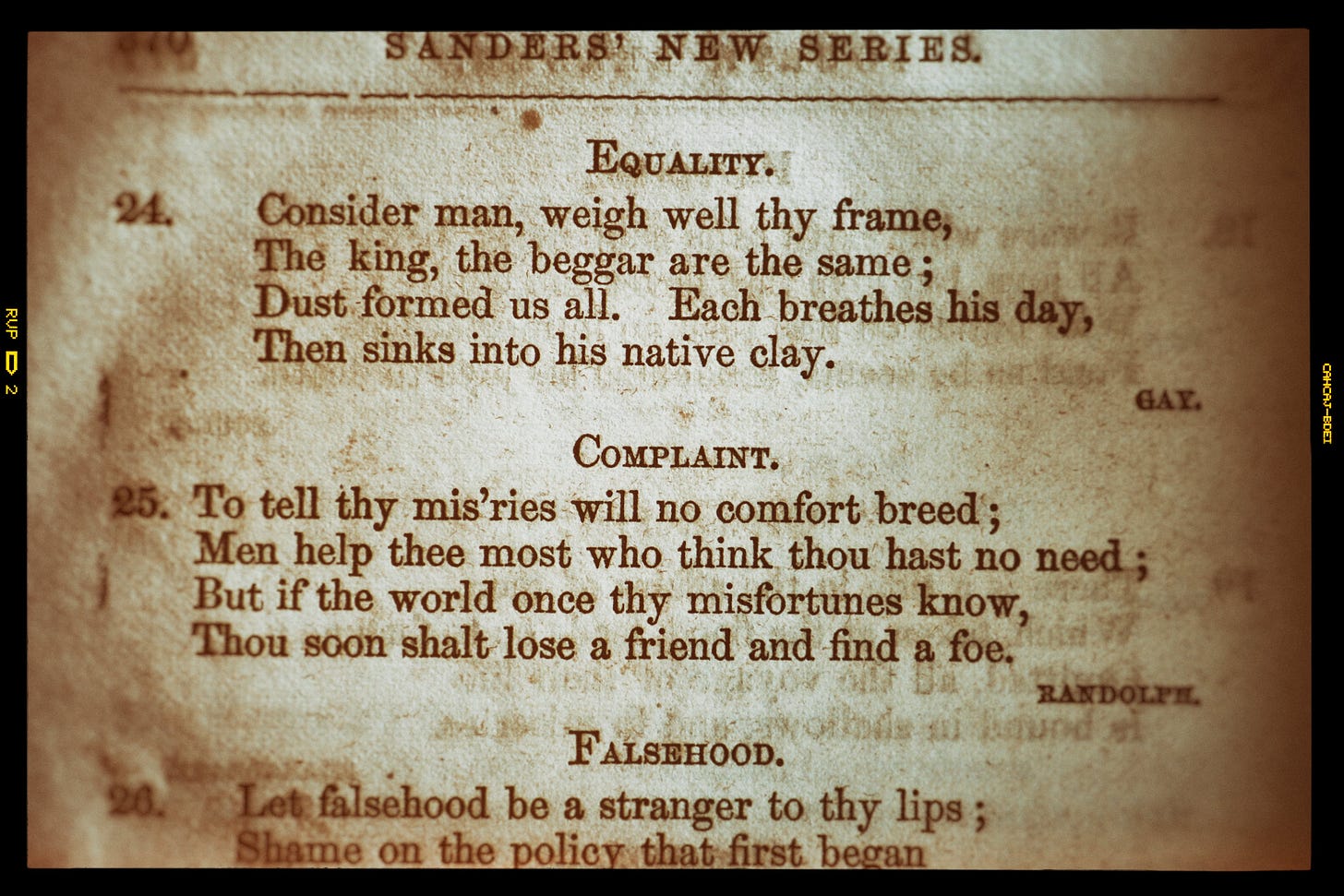
Moral tales taught not just reading, but concepts. I have no doubt that students were as skeptical then as they would be now. Or would they understand the idea behind Equality, and 'No whining!'
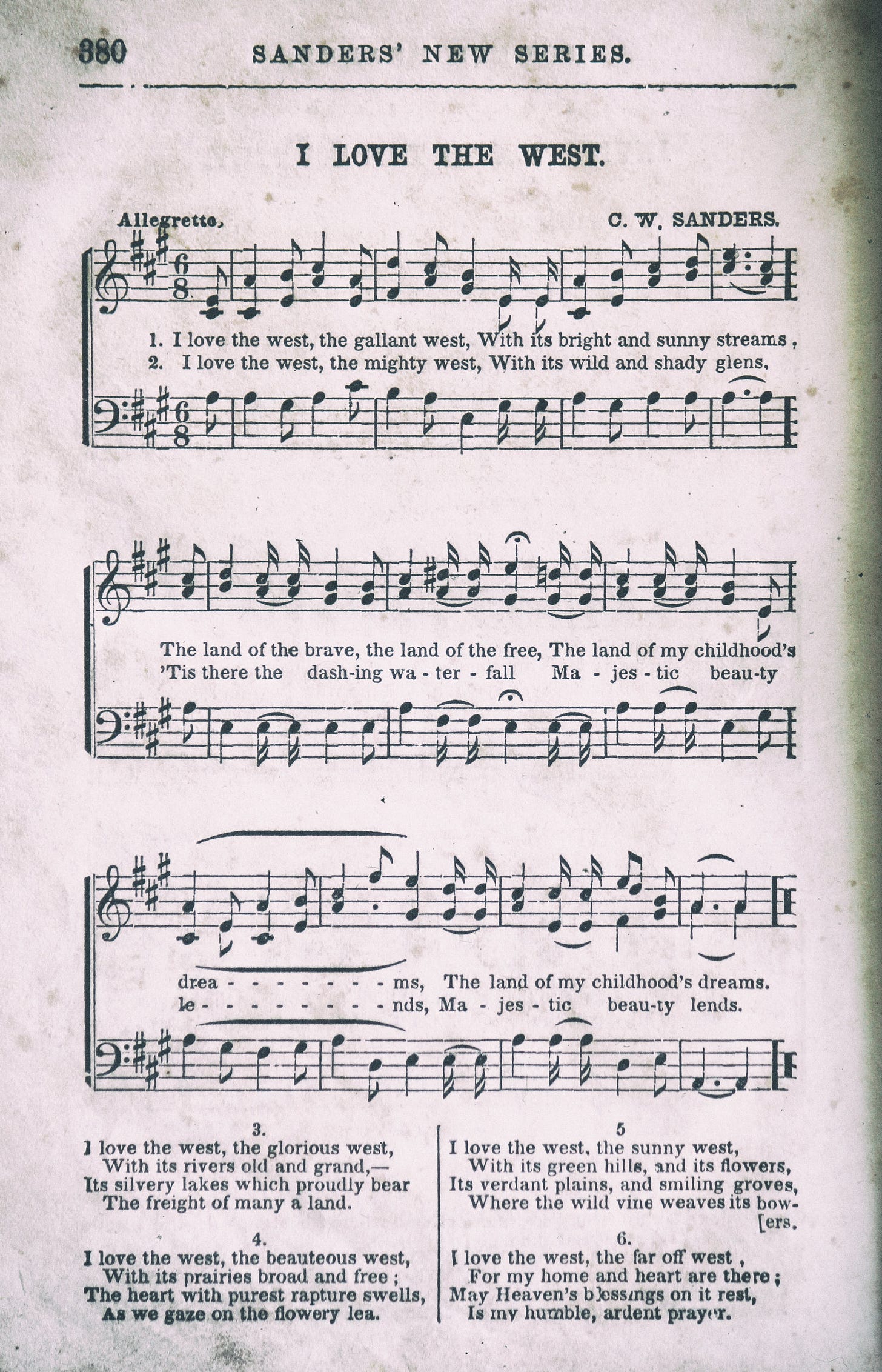
I had to chuckle a little as I read the lyrics, and then sigh as I thought of the long-gone Oregonian children singing this.




